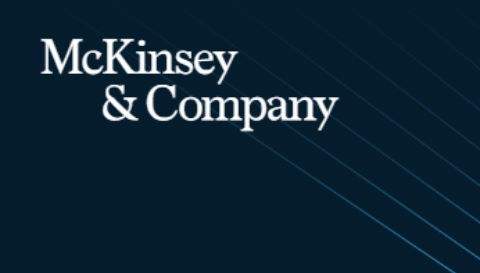
Hat tip to a kind reader for sending word of this fascinating update [see previously]: “McKinsey Opened a Door in Its Firewall Between Pharma Clients and Regulators” —
- “The firm let consultants advise both drugmakers and their government overseers, internal records show. ‘Who we know and what we know’ was part of their pitch.”
- “Jeff Smith, a partner with the influential consulting firm McKinsey & Company, accepted a highly sensitive assignment in December 2017. The opioid manufacturer Purdue Pharma, beleaguered and in financial trouble, wanted to revamp its business, and an executive there sought out Dr. Smith….But the corporate reorganization was not Dr. Smith’s only assignment at the time. He was also helping the Food and Drug Administration overhaul its office that approves new drugs — the same office that would determine the regulatory fate of Purdue’s new line of proposed products.”
- “The story of Dr. Smith’s simultaneous work for Purdue and its federal regulator is told through previously undisclosed internal McKinsey records. More broadly, they contain evidence of a porous firewall between the consulting firm’s work for private companies and for the authorities that oversee them.”
- “A review by The New York Times of thousands of internal McKinsey documents found that the firm repeatedly allowed employees who served pharmaceutical companies, including opioid makers, to also consult for the F.D.A., the drug industry’s primary government regulator.”
- “And, the documents show, McKinsey touted that inside access in pitches to private clients. In an email in 2014 to Purdue’s chief executive, a McKinsey consultant highlighted the firm’s work for the F.D.A. and stressed ‘who we know and what we know.'”
- “Since 2010, at least 22 McKinsey consultants have worked for both Purdue and the F.D.A., some at the same time, according to the committee’s 53-page report drafted by its Democratic majority. The firm provided no evidence to the committee that it had disclosed the potential conflicts of interest as required under federal contracting rules — an ‘apparent violation,’ the report said.”
- “McKinsey also allowed employees advising Purdue to help shape materials that were intended for government officials and agencies, including a memo in 2018 prepared for Alex M. Azar II, then the incoming secretary of health and human services under President Donald J. Trump.”
- “McKinsey says that its consultants are forbidden to share confidential information or discuss their work with clients that have competing interests, and in a statement a spokesman disputed that there was a disclosure requirement related to the work it did for the F.D.A.: ‘Since McKinsey has not advised the F.D.A. on specific regulatory decisions or on specific pharmaceutical products, our consulting engagements with pharmaceutical companies did not create a conflict of interest with McKinsey’s consulting work for the F.D.A.,’ the spokesman said. ‘Because there was not a conflict of interest, there was not a requirement for a disclosure.'”
- “For nearly a century, McKinsey has taken on clients in the same industries, with internal rules meant to prevent trade secrets from leaking to competitors. As McKinsey expanded to 67 countries, serving many of the world’s biggest companies, it also began to mine a new source of revenue: governments, including in the United States, Europe and Asia. It wasn’t until McKinsey began to work extensively with federal agencies that potential conflicts of interest drew the attention of Congress.”
- “McKinsey’s own guidelines on dealing with conflicts of interest for government work, which are based on federal rules, state that ‘even the appearance’ of a conflict compels its consultants to make a report to the government client’s contracting officer.”
- “In one F.D.A. proposal, McKinsey did note that Dr. Smith had previously served an unnamed opioid manufacturer, and in its statement to The Times, the firm’s spokesman said it had ‘repeatedly made the agency aware of our industry experience and our colleagues’ expertise in the pharmaceutical industry.’ But the committee’s report criticized McKinsey’s disclosures as ‘isolated and vague’ and not in accordance with the firm’s own policy. The F.D.A. has previously said it was unaware of McKinsey’s work for Purdue until 2021.”
- “In 2016, while Dr. Smith advised the F.D.A. on its use of data for tracking drug safety, colleagues sought his counsel on how the firm might draw on that work with the agency to help Purdue. The documents indicate multiple occasions when McKinsey promoted its connections with federal regulators when pitching its services to pharmaceutical clients.”
- “Earlier, in a 2009 presentation offering its services to a pharmaceutical industry group, McKinsey wrote that it directly supported regulatory bodies ‘and as such have developed insights into the perspectives of the regulators themselves.'”
